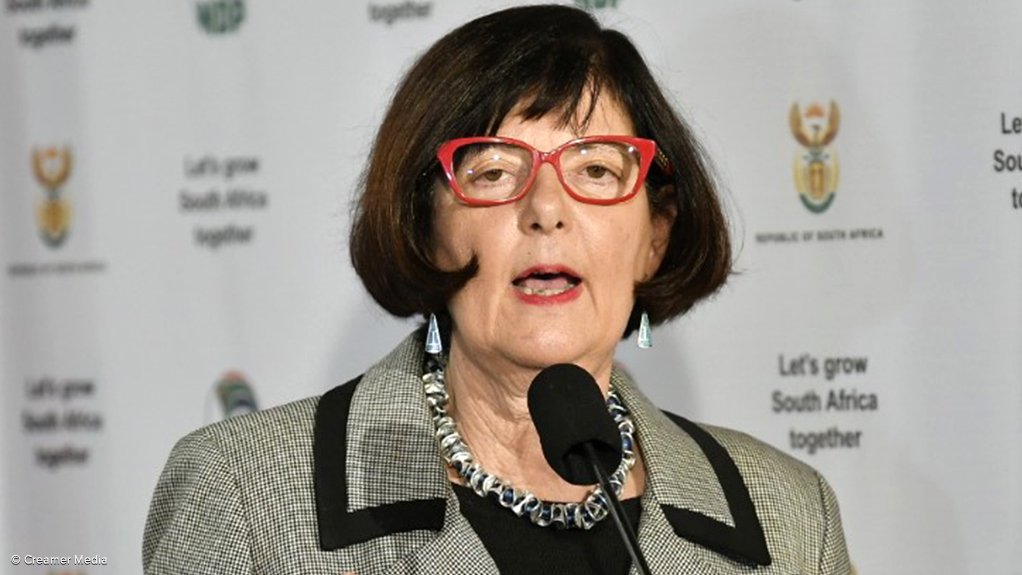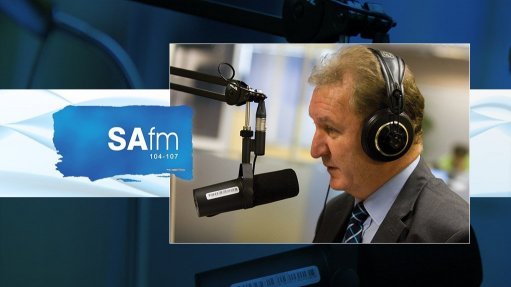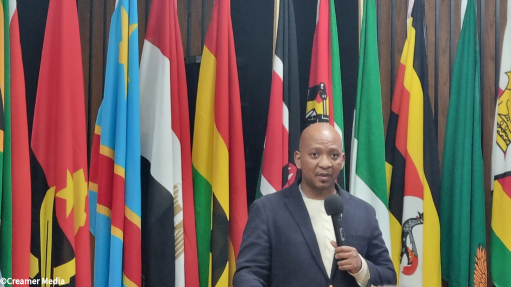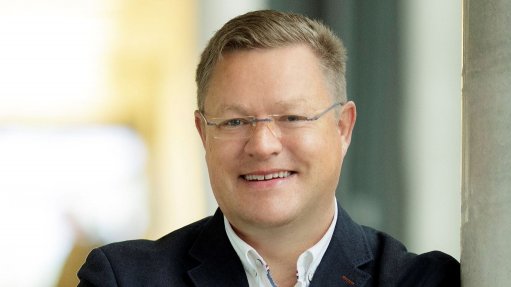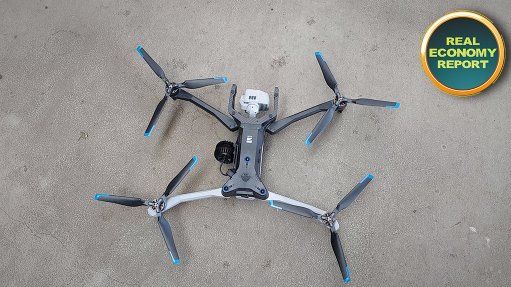Transport conference outlines challenges, opportunities in necessary reskilling/upskilling
South Africa’s transport industry is a significant contributor to the country’s gross domestic product; however, it is being impacted on by several factors, which necessitates the reskilling and upskilling of participants, to ensure the industry’s sustainability and improved performance moving forward.
This was highlighted by Transport Education Training Authority (Teta) CEO Maphefo Anno-Frempong, delivering the keynote address during the first day of the yearly Southern African Transport Conference, which is being held this week at the Council for Scientific and Industrial Research, in Pretoria, under the theme “Upskilling and reskilling the transport industry for current and future challenges”.
She pointed out that more work needed to be done to improve the industry, given that it has yet to recover to its pre-pandemic levels.
Anno-Frempong explained that global supply chain challenges, a move towards a green economy for sustainable development, strides in innovation and research, the Fourth Industrial Revolution (4IR) and digitalisation, legislative and regulatory changes, youth employment initiatives, and an ageing workforce were all factors that had necessitated reskilling and upskilling in the industry.
She cited a study undertaken by Teta, which indicated there was no concern for occupations becoming completely obsolete.
Rather, it is mainly support roles that will become redundant, with fewer roles per occupation required.
The main occupations that required upskilling/reskilling were drivers and IT specialists, Anno-Frempong informed.
She emphasised the need for skills to be geared for success and relevance, such as driving, business and technology skills.
Occupations and skills that require reskilling/skills repurposing include, in maritime, IT specialists, financial management and engineers.
In forwarding and clearing, drivers, IT specialists and those involved in the loading of cargo.
In freight handling, drivers, technicians, and health and safety skills.
In road freight, drivers, mechanics, management skills and machine operators.
Taxis would require drivers and business and management skills.
Rail would need rail operators and maintenance and IT specialists.
Lastly, road passenger would require drivers, mechanics, and gearbox specialists.
Upskilling and reskilling was not without its challenges, the study found, with these including a lack of basic skills, outdated curricula, funding and resource shortfalls, costly legal requirements, skills development being undervalued compared with work experience, lengthy qualification processes, resistance to change, outdated technology being used, unawareness of sector education and training authority funding, and a lack of awareness at a school level.
More positively, reskilling offers employment opportunities in emerging jobs in the industry.
The top ten emerging jobs in transport were autonomous vehicle operator or technician, electric vehicle technician, urban mobility specialities, transportation security specialist, logistics coordinator for e-commerce, drone delivery operators, data analyst or transportation planner, sustainable transport specialist, smart traffic management engineer, and transportation IoT specialisation, Anno-Frempong outlined.
She highlighted that Teta was collaborating with several universities and organisations in 4IR training.
Anno-Frempong emphasised that the new occupational qualifications that were being phased in for skills training would bridge the skills gap, enhance workforce competence, promote lifelong learning, and ensure industry relevance in the transport industry.
Meanwhile, delivering her first speech since assuming her new role, Transport Minister Barbara Creecy expressed her commitment to continuing initiatives to improve the sector, including private-public partnerships, reforms to rebuild Transnet to pre-pandemic levels, and rehabilitating the Passenger Rail Agency of South Africa lines and reopening them to the public.
Progress achieved by the National Logistics Crisis Committee would also be bolstered, as would implementation of the Freight Logistics Roadmap.
The Ministry was also developing a draft devolution strategy for urban commuter rail, Creecy informed.
Further, she emphasised that work had to be done to mitigate the high rate of road accidents and deaths. Creecy further pledged to work with the taxi industry for it to take its place as part of a cleaner, greener ecosystem.
Creecy also called for reskilling and upskilling; as well as using the country’s location to position it as a transport hub and work to unlock opportunities provided by the African Continental Free Trade Area as well as BRICS.
Comments
Press Office
Announcements
What's On
Subscribe to improve your user experience...
Option 1 (equivalent of R125 a month):
Receive a weekly copy of Creamer Media's Engineering News & Mining Weekly magazine
(print copy for those in South Africa and e-magazine for those outside of South Africa)
Receive daily email newsletters
Access to full search results
Access archive of magazine back copies
Access to Projects in Progress
Access to ONE Research Report of your choice in PDF format
Option 2 (equivalent of R375 a month):
All benefits from Option 1
PLUS
Access to Creamer Media's Research Channel Africa for ALL Research Reports, in PDF format, on various industrial and mining sectors
including Electricity; Water; Energy Transition; Hydrogen; Roads, Rail and Ports; Coal; Gold; Platinum; Battery Metals; etc.
Already a subscriber?
Forgotten your password?
Receive weekly copy of Creamer Media's Engineering News & Mining Weekly magazine (print copy for those in South Africa and e-magazine for those outside of South Africa)
➕
Recieve daily email newsletters
➕
Access to full search results
➕
Access archive of magazine back copies
➕
Access to Projects in Progress
➕
Access to ONE Research Report of your choice in PDF format
RESEARCH CHANNEL AFRICA
R4500 (equivalent of R375 a month)
SUBSCRIBEAll benefits from Option 1
➕
Access to Creamer Media's Research Channel Africa for ALL Research Reports on various industrial and mining sectors, in PDF format, including on:
Electricity
➕
Water
➕
Energy Transition
➕
Hydrogen
➕
Roads, Rail and Ports
➕
Coal
➕
Gold
➕
Platinum
➕
Battery Metals
➕
etc.
Receive all benefits from Option 1 or Option 2 delivered to numerous people at your company
➕
Multiple User names and Passwords for simultaneous log-ins
➕
Intranet integration access to all in your organisation



